Jean-Guy Gagnon is looking over documents he received recently from a Vancouver firefighter on how to prevent fires in old multi-resident buildings like the one he has lived in for 14 years.
He’s seated at a small table in his home at The Arlington, a 30-room single-room-occupancy (SRO) hotel on East Pender Street, across from an elementary school and adjacent to a 1910-era church in Strathcona.
“There’s a lot of stuff here that will help us make sure this place doesn’t burn down,” said Gagnon, holding up a page on fire extinguisher training and another on the dangers of clutter in a building.
Gagnon’s knowledge of what to do if a fire were to break out in The Arlington has increased significantly in recent months. That’s because he has participated in workshops and walk-throughs of the three-storey building with fire prevention and public education staff from Vancouver Fire and Rescue Services.
He’s now The Arlington’s lead tenant of the fire safety team, or fire "bolt" — an acronym for "building operations led by tenants."
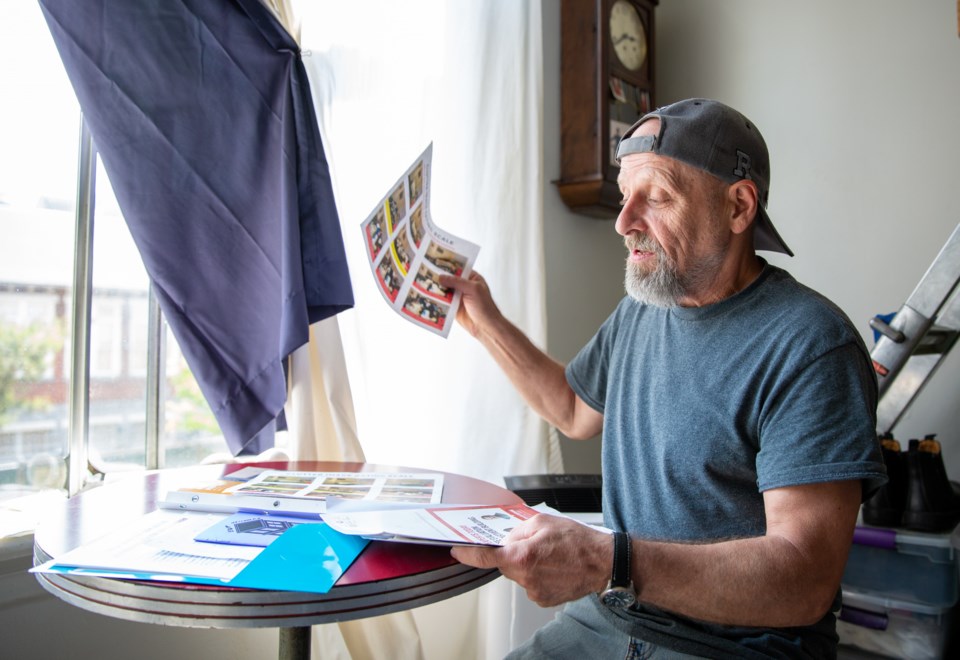
Private SROs 'disappearing'
The program is the result of a relationship formed between the non-profit DTES SRO Collaborative and the fire department, which responded to 679 SRO fires between 2020 and 2022.
In 2022 alone, four people died and 10 others were injured in SRO fires, with total damages to buildings reaching $90,364,165, according to data on the City of Vancouver’s website.
That included the deadly fire at the Winters Hotel in Gastown.
In the space of four months, city council has approved $160,000 for the Collaborative to help educate tenants across 36 privately owned SROs about fire safety.
The money is being used to hire an SRO fire safety coordinator, expand workshops and train tenant representatives from each building on fire prevention, including running regular fire drills.
Though SRO owners are supposed to have operational fire safety plans in place, with working fire extinguishers, smoke alarms and clear exits, not all do, leaving a dangerous gap in buildings lived in by some of the city’s most vulnerable citizens.
The importance of the work cannot be overstated, as the Collaborative’s executive director Wendy Pedersen explained, noting the loss of life from fires.
But it’s also the dwindling supply of private SRO stock from fire damage, city-ordered closures, demolition and conversions of buildings to higher-priced accommodation that concerns Pedersen.
“Why are we focused on the privately owned hotels?” she said. “Because they're disappearing, and people are at risk of homelessness. And they're disappearing because of rapid gentrification and/or deterioration of the buildings.”
A staff report to city council this week showed there were currently 3,305 private SRO rooms in Vancouver, a drop of 4,525 from 1994 when 7,830 were open.
Rents have also soared, increasing 21 per cent in the past four years, with $681 per month the average in a private SRO; it’s $736 per month, if the calculation doesn’t include hotels run by Chinese benevolent societies or private hotels operated by non-profits.
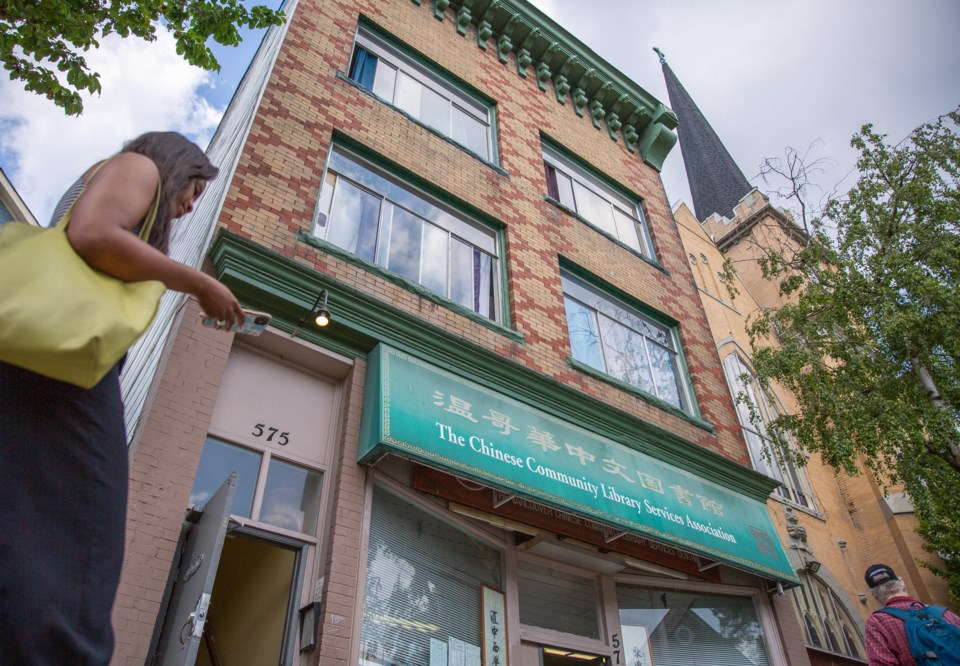
'A big, wonderful chunk of money'
The pressures facing low-income SRO tenants in private buildings is not lost on the provincial government, which made an $11-million commitment two weeks ago to the Collaborative to enhance its current programs and create new ones.
Should the government have put the money towards buying private hotels, instead?
It is an ongoing discussion in the community.
For now, Pedersen is more than grateful for the funds, which will be available over five years and dedicated to not only fire safety but community kitchens, room repairs, cleaning, overdose prevention and tenant education related to eviction.
Increasing Indigenous cultural connections and support for the many Chinese seniors living in SROs will also be included in the work conducted across 60 private buildings that have an estimated total of 3,000 rooms.
At least $2 million will go towards a community land trust.
“It’s a big, wonderful chunk of money,” said Pedersen, who has battled for decades on behalf of SRO tenants for better living conditions and rent control. “It was a really exciting moment for the Collaborative.”
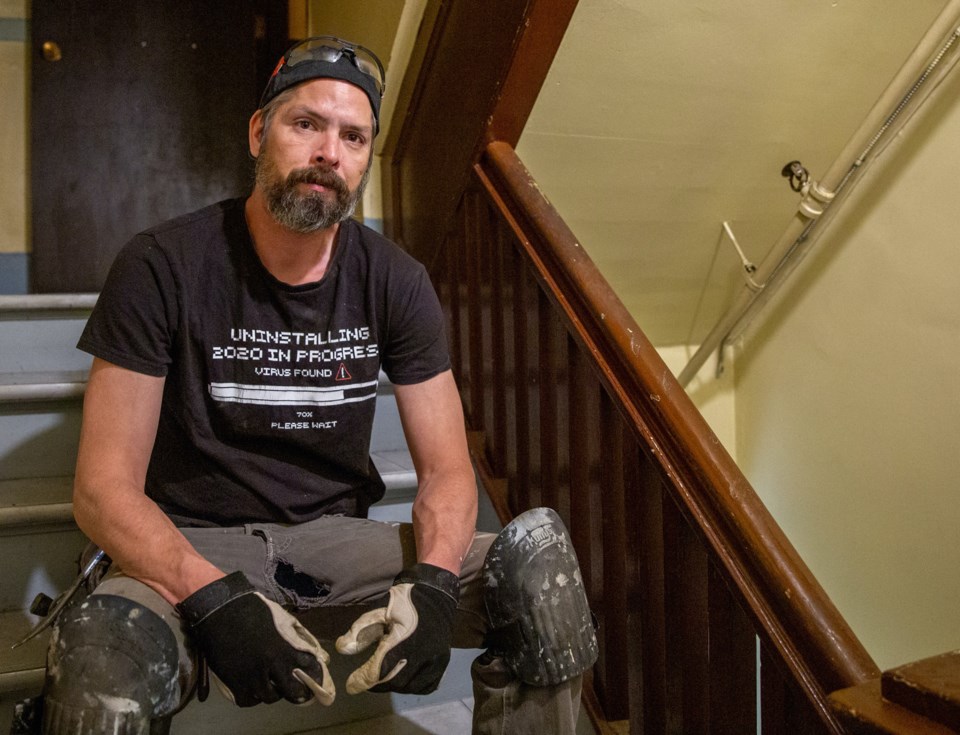
'I like lending a hand'
Tyrone Renney, who has lived at The Arlington for almost 10 years, is a working example of the tenant-driven initiatives that will be enhanced with the funds. Renney was renovating a room this week at the hotel with a friend, who is learning how to do drywall work.
He’s essentially The Arlington’s handyman and gets paid an honorarium.
“I like lending a hand — that's important to me,” said Renney, a former chef. “One of my values is you’ve got to attend to the garden that's within your reach. Also, my mom lives a couple of blocks away and she lives by herself. She's getting a little older, so it's nice to have a place close by, and the rent is pretty affordable.”
He anticipated the government money will help the Collaborative continue to empower tenants like him and build tighter communities in the SROs.
Renney is a recipient of the Collaborative’s “SRO degree,” which he obtained after participating in workshops related to maintenance and repair skills, eviction prevention and effective communication with landlords.
“A lot of people in these buildings are by themselves, and may be estranged from family or whatever,” he said. “It’s interesting how people can actually come together and become a family, and build a trust. So I think that's actually really cool.”
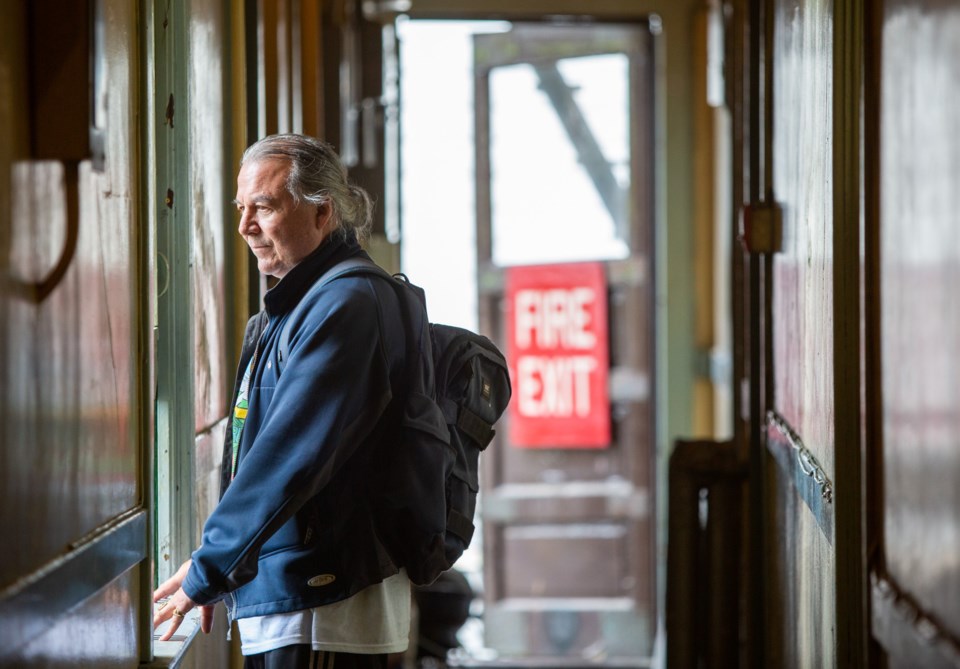
'Buy our building'
While Renney was busy priming a ceiling, tenant Richard Schwab was down the hall taking care of a food delivery from Watari Counselling and Support Services, which provides boxes of groceries on Tuesdays and hot meals on Fridays.
Schwab has lived at The Arlington for 18 years.
The hope, he said, is the $11 million will help the Collaborative and tenants demonstrate how enhancing and creating more programs inside the hotels can serve as a model for better-run, safer buildings that build community.
“[The government has] to come and breathe over our shoulders on [this investment] and see exactly what we're up to — and I kind of get that because it's taxpayer money,” said Schwab, who is president of the Collaborative’s board of directors and responsible for organizing tenant committees.
“People want to see outcomes, and so do we. So to have this as a model is a great thing. You learn by doing stuff. And if it works, it works. If it doesn't, get rid of it and try something else.”
Schwab said he personally thanked Premier David Eby at a neighbourhood meeting for the investment, then half-jokingly said to him as he was leaving to “buy our building.”
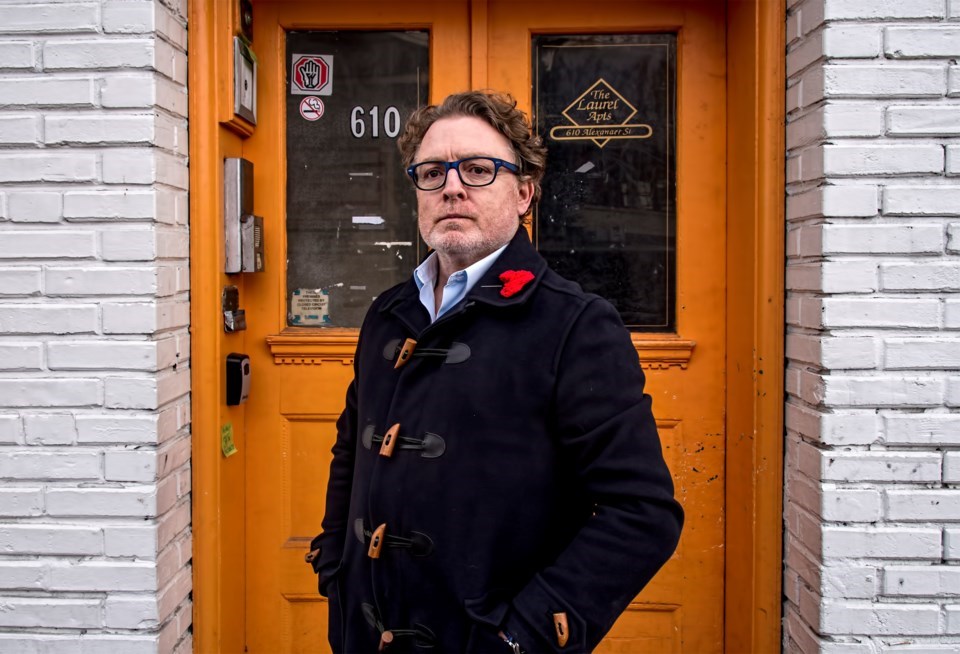
'Province should own every SRO in Vancouver'
The Arlington’s landlord is Christopher Wall, who owns seven other SROs in the Downtown Eastside, including the West Hotel, Hotel Empress and Keefer Rooms. Wall said he sees value in the Collaborative’s work and has welcomed Pedersen and others into his buildings.
“They've got strong leadership, and we've worked with them for a long time,” said Wall, highlighting the work the Collaborative did in the early days of the pandemic to get tenants food and access to vaccinations.
“But there’s only so much the Collaborative can do. It goes far beyond the Collaborative. There needs to be all sorts of big decisions made in the Downtown Eastside.”
Those “big decisions” include the B.C. government making a substantial investment in the purchase of private SROs, said Wall, who said inflationary costs related to insurance, tax, debt, repairs and utilities are making it difficult for him to look at keeping his investments, without spiking rents or cutting services.
“It's my belief that SROs should be in the public domain — the province should own and control every SRO room in the City of Vancouver,” he said, noting New York City does not have one privately owned room in that city’s SRO building stock.
Why government ownership?
“First of all, it's the only way the government can control rent increases, and I think that you're going to see rents continue to increase,” said Wall, whose first SRO purchase was Hotel Empress on East Hastings Street in 2014.
“If government has control, they can bring in all sorts of government services, health-related services, fire protection and the like.”
Added Wall: “We obviously want to run our buildings well. We want 24-hour security, we want to have pest control, we want to have garbage handled properly. We want our fire escapes to be clear. But all those people are paid to do those things.”
The average rent across Wall’s 475 rooms is $600 per month.
He disclosed that he is in ongoing discussions with the province in an attempt to sell his hotels.
“They certainly know who we are, and they have my number,” he said.
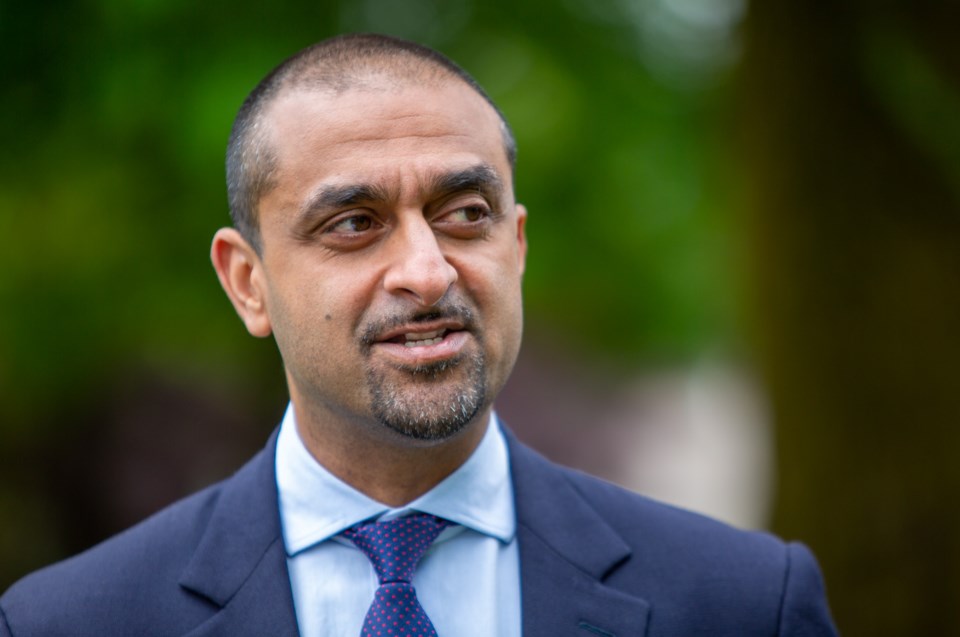
'We need a bigger plan'
Housing Minister Ravi Kahlon confirmed in an interview Wednesday that the B.C. government is discussing with Wall and other building owners about possible purchases of private SROs.
Such a move by the provincial government would not be unprecedented, with various housing ministers over the past two decades announcing purchases of more than 25 private SROs in Vancouver.
Many have been renovated and are run by non-profits.
“In some cases, yes, we will be open to purchasing an SRO site, if we feel [its pending sale or loss] is going to displace a lot of people — same as we've done with private market rentals with the new $500-million fund,” said the minister, referring to the government’s Rental Protection Fund to allow non-profits to secure older rental buildings.
“We want to protect as many renters as we can, and we're looking at all options.”
But Kahlon clarified the government isn’t interested in “one-offs,” meaning purchasing a hotel here and there. He wants a comprehensive “big, overarching strategy” instead, he said.
“If it's a reasonable price, and not somebody saying I want to make a lot of money off of this, then we will consider purchasing it,” he said. “But we need a bigger plan.”
'We're at the table'
He emphasized the need for the federal government to be involved in a strategy to invest in private SROs, a strategy the City of Vancouver estimated at $1 billion — and one federal Housing Minister Ahmed Hussen told reporters in November 2021 that he was interested in.
“The federal government is doing more than federal governments have done in the last 30 years, but nowhere near — I believe — to the level that we need right now,” Kahlon said.
“The engagement they've had around SROs is very preliminary. The City of Vancouver and the province are willing partners — we’re at the table. We just need them to come to the table in a meaningful way. I'll be going to Ottawa in a month's time, and this will be one of the top things on my list.”
The $11-million investment, meanwhile, in the Collaborative is necessary to keep tenants and private buildings safe, said Kahlon, who described the work of the non-profit as “fantastic” in the way it supports SRO residents.
“When you have people that have lived there, and are giving advice, research overwhelmingly shows that you're going to get better results — and people are going to be more responsive to the information coming,” he said. “So we've provided them the dollars to do that.”
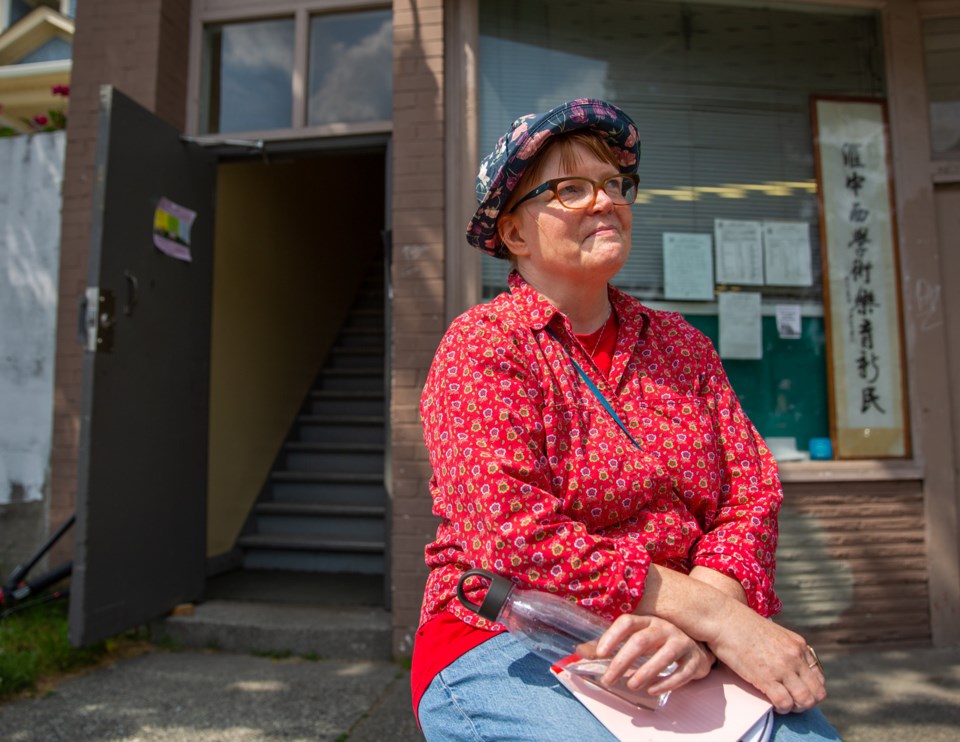
'That's a special thing'
Back at The Arlington, Pedersen and others present are discussing plans for one room in the building to be converted into a cooling space, where tenants can seek refuge on hot days. Bottled water delivery is also in the works for Saturdays.
A muster station location, ensuring all smoke alarms are working and choosing a “fire captain” for each floor are on the tenants’ to-do list — all efforts that have been made easier with Wall welcoming the Collaborative’s work, Pedersen said.
“That’s a special thing, and he can be a model to other landlords,” she said, acknowledging not all landlords are on board with the program, but that the Collaborative has still been successful in connecting with tenants in other buildings who are enthusiastic about participation.
"Some of the landlords are [missing in action]. The fire department does what it can to hold them accountable, and I do see them doing good work around that. But it's a bit like shovelling wet sand on a beach, in my opinion."
Pedersen stretches out her arms as if to give a person a hug to summarize the Collaborative’s strategy, which she believes is a good investment for governments when considering the costs of homelessness.
“We're basically trying to wrap our arms around the last of the privately owned hotel stock and prevent people from becoming homeless,” she said.
“If any of these guys in this hotel end up in the expensive supportive housing system, the expensive shelter system, the expensive street scene, or emergency services, that's not in the government’s interest. It's in their interest to hold these buildings in place.”




